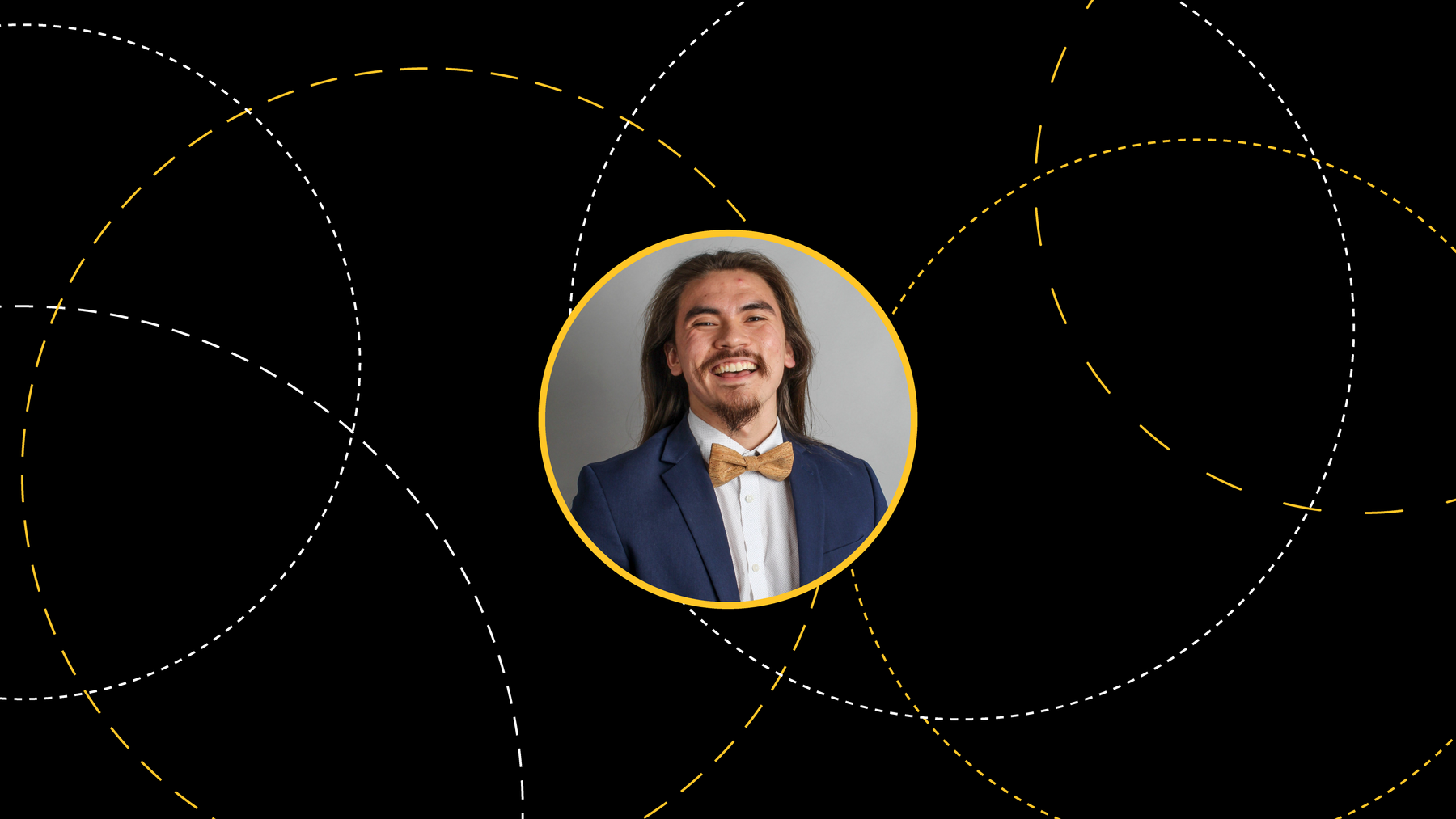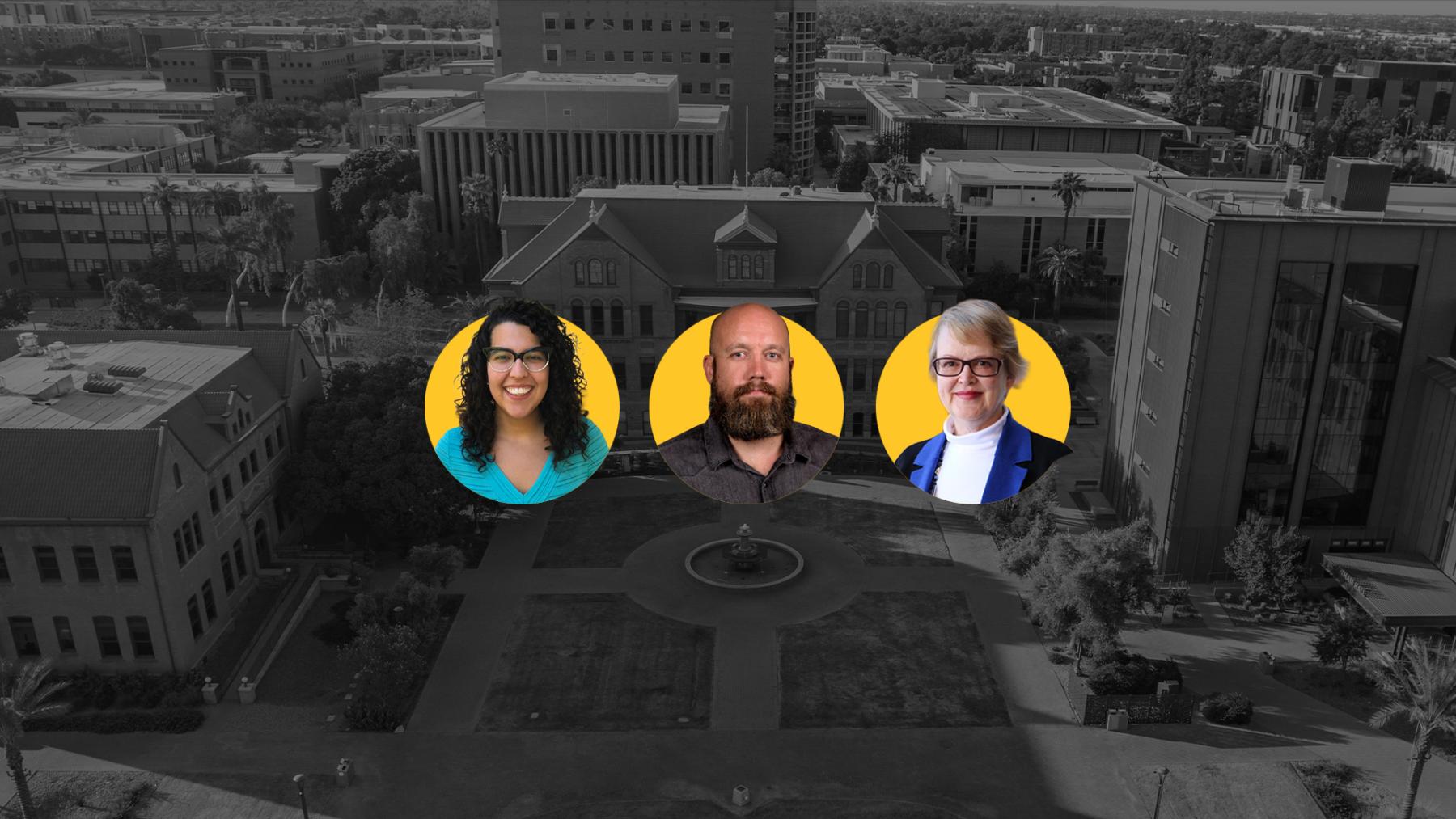
Driving change: Khampha Stempel's journey to a sustainable future
We’re excited to introduce Khampha Stempel, a Graduate College Enrichment Fellow dedicated to exploring the intersections of sustainability and justice. In this Q&A, he discusses the importance of critiquing systems of power in renewable energy transitions and reveals his favorite ways to unwind and recharge!
Name: Khampha Stempel
- Program: Sustainability Management and Global Economics
- MA, Sustainability
- PhD, Sustainability
What's something you learned during your professional or academic journey that surprised you or changed your perspective?
The need to balance pessimism/optimism and struggle/hope. Centering my work in discussions of justice has required that I actively resist harmful systemic and institutional power dynamics. Actively participating in justice work also requires that rest be approached as a form of resistance.
What problems do you work on, and why do you think they are important?
Broadly, I engage in intersections of sustainability and justice. I ask, "What" and "who" is being sustained in processes deemed “sustainable.” Recently, I applied these questions to renewable energy transitions in the United States. Demands for renewable energy infrastructure are increasing amid a national urgency to address climate change and social inequity. Institutions driving the renewable energy transition in the United States, like federal and state governments, corporations, and NGOs, are also embedded in an ongoing history of settler colonialism. Mining critical minerals necessary for renewable energy technologies, developing new manufacturing facilities and creating space for these technologies to exist require land use changes. Land use change is a process Indigenous communities are highly familiar with. Considering the justice implications of renewable energy transitions requires a critique of settler colonialism embedded in the function of national institutions driving mainstream renewable energy interests. Rethinking settler colonial renewable energy transitions offers the possibility to strive toward a more anticolonial and decolonial pathway to renewable energy transitions.
How did you become involved in this work? What inspired you?
Participation in social movements through leadership, facilitation, or participation. Resistance to systemic and institutional violence is necessary to sustain a just world.
How have you interacted with the Graduate College? Is there an event, initiative or funding opportunity you're excited about?
This is my first major interaction with the Graduate College. I am excited to be part of the Graduate College Enrichment Fellows cohort!
What advice do you have for students interested in your field or higher education?
Find rest, hold onto hope and apply critical thinking skills across your work.
What are your relaxation practices to recharge during the semester?
Establishing my schedule and intention to be routinely spontaneous has been crucial to my self-care routines. I typically start my day with meditation, followed by exercise. A mix of weightlifting, boxing, running, rock climbing and yoga helps me sustain my routine. Cooking and eating good food, alongside my exercise routine, is also essential. Finding time to have fun with friends and family regularly is necessary. Being spontaneous—whether going to a concert at Crescent Ballroom, watching a football game, enjoying a beer at The Shop or biking along the lake with friends—keeps a sense of social connectedness in my life. Additionally, finding ways to experience peace and balance, whether by myself or in a social space, is hard but necessary for me to feel centered. I find this balance through music, art, literature, thrifting and sports.
What are some of your long-term professional goals?
I aim to be a competitive candidate for a tenure-track professorship at a public research institution after my PhD program. Setting milestones and goals related to research, publications and activism is crucial.
More stories from the Graduate Insider

Graduate education is an adventure
About eighteen months ago, I set out on a journey walking the islands of the Dodecanese during a sailing trip in Türkiye and Greece with several friends. Along the way, I found winding paths, timeless villages and breathtaking views of sea and sky. That experience got me thinking about how adventure shows up in other parts of life, especially in learning.

From practice to presentation: How to deliver a winning faculty job talk
Giving a job talk can feel like the most high-stakes presentation of your academic job search. It’s not just a research seminar—it’s your opportunity to demonstrate vision, communication skills, and fit within a department. In a recent Lunch and Learn, faculty members Associate Professor in School of International Letters and Cultures, Anita Huizar-Hernandez, Professor in School of Life Sciences Jeffrey Jensen, and Professor in Department of Physics Patricia Rankin shared concrete strategies to help graduate students and postdocs succeed as future faculty candidates.

Mentoring matters: Mentoring students through impostor syndrome
Graduate education can be an exhilarating journey — but for many students, it also brings moments of self-doubt and uncertainty. In our recent Mentoring Matters panel, “Mentoring Students Through Impostor Syndrome,” Graduate College Senior Associate Dean Dr. Lisa Anderson sat down with Dr. Rebecca Wachs, Associate Professor in the School of Biological and Health Systems Engineering, and Dr.